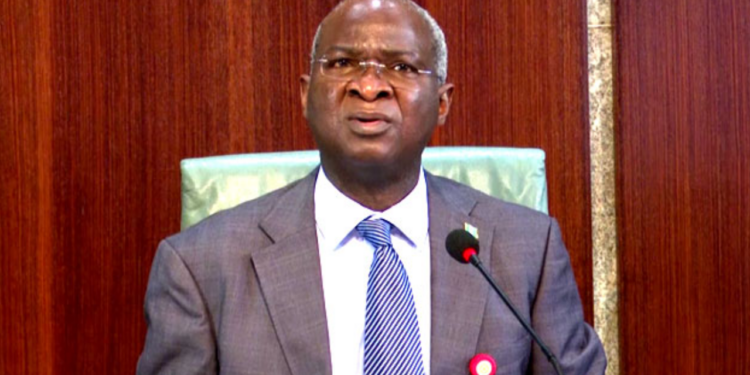Former minister of Works and Housing, Mr Babatunde Fashola, has expressed optimism about the nation’s economic fortunes, saying the growth rate is promising.
Fashola spoke at the Annual General Conference of Egbe Amofin O’odua held in Ikeja, Lagos.
The former governor of Lagos State said, “As far as prospects for economic growth are concerned, the horizon is extremely promising. The tools to achieve expansive and inclusive growth, especially the manpower in quality and quantity already exist.
“Apart from the human capital, growth will also be impacted by hard infrastructure and soft infrastructure and all of these already are a work in progress and we as citizens just need to understand better how they work, how they impact us and what our roles are in the process.
“Let me deal with the hard infrastructure first, which includes but is not limited to ports (air and sea), roads and bridges, rail and lately broadband infrastructure. These are the first things that determine how much an economy can grow.”
He argued that the countries that build, buy or produce more of the infrastructure are usually able to create more opportunities for growth, productivity and employment.
“If we look at a few case studies of what we have done before, the less talked about and sometimes not largely known opportunities beyond the delivery of the infrastructure asset itself will become obvious to us.”
According to him, Lagos-Ibadan Expressway for instance is more than a road, saying it was a job centre and forum for economic exchange, adding that during the reconstruction of section one of the expressway, covering 44 kilometres from Lagos to Sagamu, significant job opportunities were created.
“This section of the project employed: 29 subcontractors; 161 suppliers; 75 permanent jobs at the quarry, which facilitated about 30 truck trips per day; the contractor paid N39.8 billion to suppliers; N10.6 billion to its own employees.
“This indicates the project’s substantial economic impact through the engagement of various stakeholders and employment generation across different levels of expertise.”
On the Second Niger Bridge, Fashola said the construction created approximately 20,000 jobs at the construction site, adding that the employment involved different roles including engineering, skilled and unskilled labour as well as support services.
Dwelling on other sectors, he said, “As we can see, soft power is gradually but consistently gaining prominence over hard power. Artistes, sports personalities, entertainers now have a booming voice in global affairs, and there has been no time in human history like now when talent is receiving so much reward, recognition and remuneration.
“Sports and entertainment are no longer hobbies; they are professions which must now form robust pillars of our prospects for economic growth. They are opportunities for youth development and growth seemingly hiding in plain sight. But they are not opportunities without challenges and I intend to invite our attention to a few and perhaps drop a gauntlet for Egbé to contribute to charting a pathway.”



